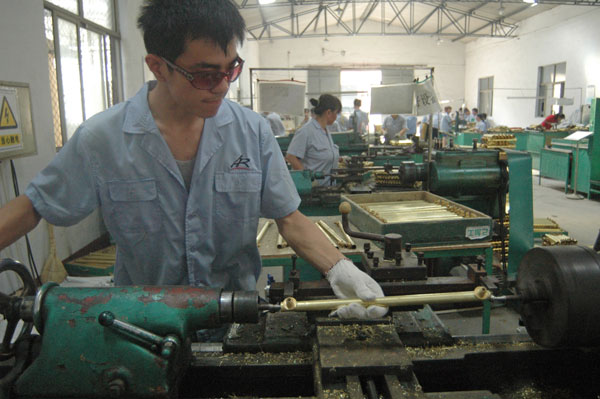Futures is here
Updated: 2015-08-07 09:22
By Cecily Liu(China Daily Europe)
|
|||||||||||
For example, in Australia, as Chinese companies have bought shares in natural resources firms, more of those Australian companies' activities are financed by Chinese banks that already have a working relationship with their shareholders.
This trend has led Chinese banks into the commodity financing space, and as a result of such involvement, participation in the commodity trading and hedging space became a natural progression, Clarke says.
This increasing commodity trading by Chinese banks will benefit the global commodity trading markets by increasing liquidity. It would benefit the clients of the Chinese banks, for example, through making available to those clients the means to hedge their forward price risks.
In 2012, Bank of China's commodities trading arm, BOCI Global Commodities (UK) Ltd, became a member of the world's biggest metals bourse, the London Metal Exchange, giving it the right to trade by phone and electronically.
This was followed by China Merchants Securities, one of China's largest securities companies, and GF Financial Markets, a Chinese derivatives broker, which also started trading on the LME.
Earlier this year, Bank of China became the first Chinese bank to join the auction process that sets gold prices in the London market, run by ICE Benchmark Administration.
These initiatives by Chinese banks are happening at a time when Western banks are retreating from the commodity trading space due to declining profitability in the sector and increasingly stringent financial regulations following the 2008 financial crisis.
Most of these financial regulations demand stricter capital requirements for banks, such as Dodd-Frank, EMIR, and Basel III, and limits on proprietary trading by banks, such as the Volcker Rule.
Last year, Barclays said it would give up most of its metals trading, and JPMorgan agreed to sell its physical commodities business to Mercuria, a Swiss commodities trading firm. Morgan Stanley is also seeking to sell its oil trading assets.
Chinese banks' bigger balance sheets mean on average they have more capacity for commodity trading while still meeting the requirements, Clarke says.
"Chinese banks trading in this space have bigger balance sheets to start with than other banks, and thus the overall risk to its balance sheet from such activities may be lower given the relative size of the trading activities to that balance sheet and, potentially, the Chinese banks' returns may be higher or pricing keener if their cost of capital used for such trading activities is lower than such other banks," Clarke says.
Today's Top News
China rejects Philippine, Japanese, US claims on S. China Sea issue
MH370 passengers' families want more answers
'New Suez Canal' opened
for ship traffic
Trump won't rule out third-party run
China asks further probe into MH370
China's property taxes coming soon
Seven arrested for trafficking women into sex slavery in China
ROK's ex-first lady begins
DPRK visit
Hot Topics
Lunar probe , China growth forecasts, Emission rules get tougher, China seen through 'colored lens', International board,
Editor's Picks

|

|

|

|

|

|







